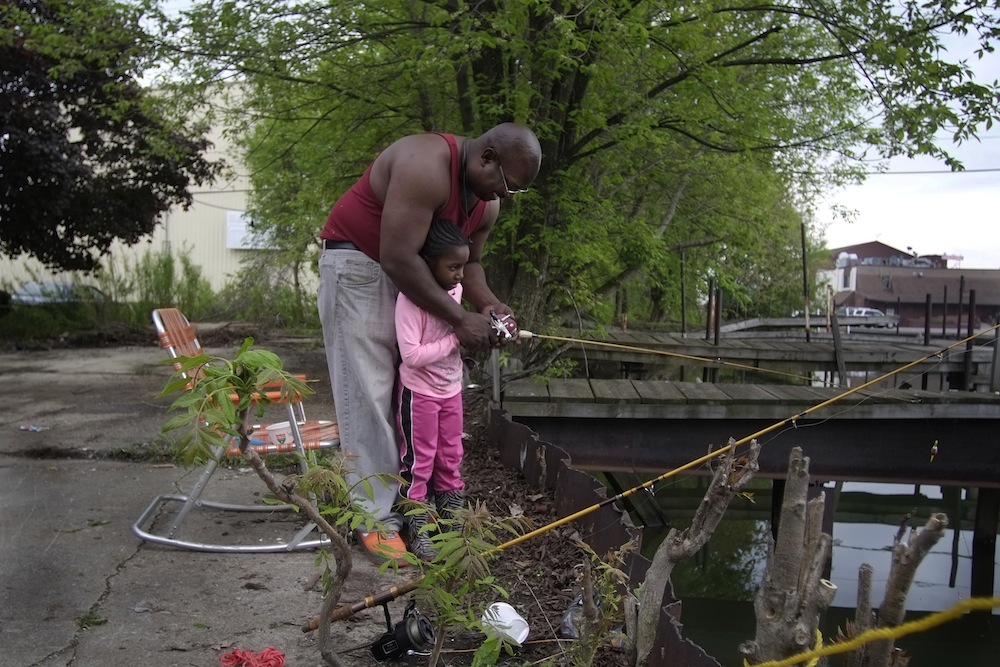
I’m not that old—38—but I’m old enough to remember when no one talked about water bills in Detroit. I used to get bills every three months for $18 or $20. Those were the good old days.
These days, the water bill comes monthly and you have to brace for it. My neighbors’ bills and mine typically run between $130 and $150. That’s higher than gas or electric bills. And it’s a burden for everyone. I’m really worried about this summer, when my kids—I have five of them—will want to play outside in the water, and people get hot and sweaty and take more showers than they regularly do.
I was born and raised in Detroit, and have lived in the city nearly my entire life. I’ve done different kinds of work, but now I have my own small business—I’m mechanic and work from the home I’ve owned for seven years in a working-class neighborhood on the east side, a diverse place that includes some of the city’s best known attractions (like Eastern Market) and some of its most dangerous areas.
I’ve seen a lot of things during my life in Detroit, and I realize that life isn’t fair. But I don’t think I’ve seen anything quite as unfair to people as how water is handled here.
The worst thing is not the higher bills. Or that landlords, who used to pay the water bills on their property, are now putting it in leases that their tenants must pay. It’s the city shutting off the water when you don’t pay.
And that’s not a rare thing, especially in the last few years, with the water bills so high and the economy not so good. Tens of thousands of people have had their water shut off.
On one block not far from my neighborhood, 14 of the 20 people have had their water shut off.
One of the people whose water was shutoff was my grandmother. It happened last year, and it was a puzzle. She’d lived in the same two-story, three-bedroom house in a neighborhood known as the North End for almost her entire adult life, since my parents were children. It’s the kind of place where everybody knows everybody, though it’s changed since I was a child—you now see some vacant houses and empty fields.
She’d never missed a payment on the house, and she was careful about paying the bills. But she’s 86, and she was having some repairs made on the house, and somehow she missed the bill.
They shut her water off—and it stayed off for a week and a half, even after we called. It was so crazy. Now she was lucky—she has 40 grandchildren and 20 great grandchildren, and I think we all brought her water—in bottles and pails. So she had water to flush the toilets and cook until the situation was under control.
Before that experience and others I’ve seen here in Detroit, I never knew they could turn your water off. That’s like air. How can a person go without water? Why are we being charged for water? I can understand that water can’t be free because pipes have to bring it to you and it has to be treated, but why does it cost so much when it’s a necessity?
Even if you’ve never had your water shut off, water here involves plenty of hassles. There are always problems with the bill, and you get used to calling up and negotiating for changes. You really have to call and negotiate. Most people I know have done this. And when the bill is very large, you can usually convince them to delay it to spread payments out or push them back. But if you’re doing that and you don’t pay the next monthly bill, you could have your water shut off.
I’ve also done a number of things to try to reduce my water. You won’t catch me watering my lawn much. I had a water-efficient sink put in. And it’s cheaper to go to the car wash than to wash my car at home.
You would think that someone like the state attorney general would step in, and fix this situation. We’re talking about water. There has to be some way, to make sure people have what we need. You’d think that something that falls from the sky wouldn’t be so hard to share.




Send A Letter To the Editors